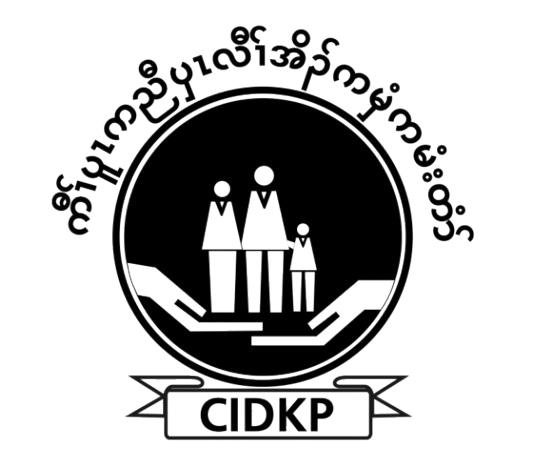Programs
Emergency Relief
Health & WASH
Mine Risk Education
Livelihoods
Capacity Building
Safe Migration
All CIDKP programs are cross-border, independent of the SAC, and rooted in Karen community leadership. With nearly 400 staff and a wide network of community volunteers, CIDKP ensures that humanitarian assistance reaches families in need quickly, fairly, and with dignity.
Emergency Relief & Rehabilitation
CIDKP responds to urgent needs with life-saving support and stays with communities through all stages of recovery.
Emergency Relief
- Cash-based assistance, food, and non-food items
- Shelter support (tarps, plastic sheets, emergency repairs)
- Hygiene kits and household supplies
- Early warning systems, radios, and protection mechanisms for IDPs
- Psychosocial first aid through children’s play activities and community sports
Rehabilitation
- Rebuilding essential infrastructure: schools, dormitories, water systems, roads, and bridges
- Survivor- and community-led recovery (SCLR), where communities design and implement their own small-scale projects with CIDKP support
- Psychosocial recovery projects that rebuild confidence and stability in the aftermath of violence or displacement
Health, Water, and Sanitation
Health and Wellbeing
- Hygiene promotion and disease prevention education (malaria, dengue, HIV, hepatitis)
- Maternal and child health referral services through local health partners
Water, Sanitation, and Hygiene (WASH)
- Emergency water distribution and water source testing (field and laboratory)
- Gravity-fed water systems, wells, and solar-powered water pumps
- Water purification and clean water education
- Hygiene and sanitation infrastructure for displaced and host communities
Mine Risk Education and Victim Assistance
- Mine Risk Education (MRE/EORE/CPP): awareness sessions for civilians before food or cash distributions, including risk reduction and conflict preparedness training
- Policy Development: working with civil society organizations to hold armed actors accountable for mine use and to prepare for future demining efforts
- Victim Assistance and Prosthetics: two prosthetics workshops in Karen State provide artificial limbs for landmine survivors, helping amputees regain mobility and independence; CIDKP also refers survivors for additional support where available
- Awareness and Advocacy: promoting safer practices in conflict-affected areas and building long-term strategies for mine action, despite difficult terrain and security barriers
Livelihoods and Economic Recovery
Displacement destroys livelihoods and makes families dependent on aid. CIDKP helps communities rebuild their self-reliance through practical skills, small business support, and community finance systems.
- Agriculture and animal husbandry programs
- Land rental support so displaced families can farm again
- Vocational training in weaving, sewing, motorcycle repair, and other trades
- Small business development, including market and finance training
- Revolving funds and grants for micro-enterprises
- Village savings and loans associations, community banking, and financial literacy programs
- Cash-for-work opportunities to restore income and build local infrastructure
Community Governance and Capacity Building
CIDKP strengthens inclusive leadership and good governance at the community level so that recovery and development are locally owned and sustainable.
- Training for local leaders on democratic and responsible governance
- Establishing and supporting Village Development Committees (VDCs) to manage grants and loans
- Ensuring women, youth, and minority groups are represented in decision-making
- Survivor- and community-led responses (SCLR) where communities design their own recovery projects
- Preparing communities for governance education and capacity building
Safe Migration and Protection
Many displaced families are forced to leave their homes or cross borders in search of safety. CIDKP provides reliable information and protection support for migrants and their families.
- Guidance on safe migration to Thailand
- Information platforms, including community-based information services and social media
- Protection and support for IDPs and displaced families in host communities
- Aspirational engagement in refugee settlement and repatriation assistance
